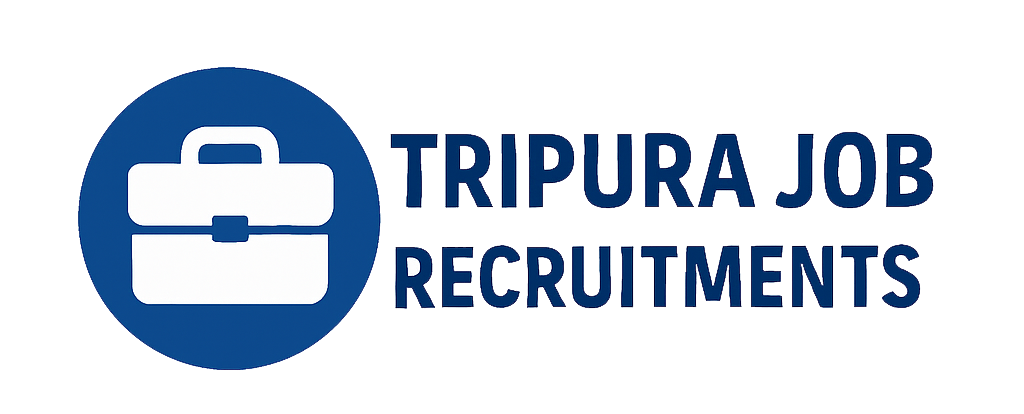Railway Jobs in India – Careers on Track with Indian Railways

A railway job refers to employment in the railway sector, which involves working with railway systems including operations, maintenance, management, engineering, and customer services. In India, the Indian Railways is one of the largest employers in the world, offering various job roles through the Railway Recruitment Board (RRB) and Railway Recruitment Cell (RRC). Railway jobs are highly sought after due to their job security, benefits, and structured career progression.
Recruitment Exams and Process
Recruitment to railway jobs is conducted through competitive exams organized by:
- RRB (Railway Recruitment Board)
- RRC (Railway Recruitment Cell)
- UPSC (for Group A officer posts)
The selection process may involve:
- Computer-Based Tests (CBT)
- Physical Efficiency Tests (PET)
- Document Verification
- Medical Fitness Tests
Overview of Railway Jobs
Railway jobs in India are mainly divided into four categories:
- Group A (Gazetted Officers)
- Group B (Gazetted Officers – promotional posts)
- Group C (Non-Gazetted staff)
- Group D (Non-Gazetted staff – manual labor and technical helpers)
1. Group A Posts
These are top-level officer positions filled through exams conducted by the Union Public Service Commission (UPSC) such as:
- Civil Services Examination
- Engineering Services Examination (ESE)
- Combined Medical Services Examination
Examples of Group A Jobs:
- Indian Railway Traffic Service (IRTS)
- Indian Railway Accounts Service (IRAS)
- Indian Railway Personnel Service (IRPS)
- Indian Railway Service of Engineers (IRSE)
- Indian Railway Service of Mechanical Engineers (IRSME)
- Indian Railway Medical Services (IRMS)
Group A officers are responsible for high-level management, decision-making, technical designs, and policy implementation.
2. Group B Posts
Group B posts are promotional posts from Group C employees. No direct recruitment is done for these positions. These roles serve as middle-level management.
3. Group C Posts
Group C jobs are filled by the RRBs (Railway Recruitment Boards). They are technical and non-technical positions that require qualifications ranging from Class 10 to graduation.
Technical Posts:
- Junior Engineer (JE)
- Assistant Loco Pilot (ALP)
- Technician Grade I and II
- Signal and Telecommunication Engineer
Non-Technical Posts:
- Commercial Apprentice
- Traffic Apprentice
- Goods Guard
- Ticket Collector (TC)
- Clerk-cum-Typist
- Station Master
Group C jobs are the backbone of railway operations and include both fieldwork and administrative duties.
4. Group D Posts
Group D jobs are filled by the Railway Recruitment Cell (RRC) and include the most basic level of employment in Indian Railways. These jobs usually require a 10th pass qualification or ITI certificate.
Examples of Group D Jobs:
- Track Maintainer
- Helper (Electrical, Mechanical, Civil)
- Hospital Attendant
- Assistant Pointsman
- Gateman
- Porter
These employees are crucial in maintaining tracks, assisting in train operations, cleaning, and other support services.
Educational Qualifications Required
Popular Railway Exams
- RRB NTPC (Non-Technical Popular Categories)
For clerks, station master, goods guard, etc. - RRB Group D Exam
For helper, track maintainer, assistant, etc. - RRB JE (Junior Engineer)
For diploma or engineering graduates. - RRB ALP (Assistant Loco Pilot)
For ITI or diploma holders. - UPSC Engineering Services
For Group A engineering posts.
Benefits of a Railway Job
- Job Security – One of the most secure government jobs in India.
- Attractive Salary – Competitive pay structure under the 7th Pay Commission.
- Pension & Retirement Benefits – Including NPS and other post-retirement schemes.
- Travel Allowances – Free or discounted travel on Indian Railways.
- Housing & Medical Facilities – Railway quarters and access to Railway Hospitals.
- Career Growth – Promotion through exams and performance appraisal.
- Work-Life Balance – Fixed working hours for most roles.
Working Environment
The working environment in the railway sector depends on the job role:
- Technical Jobs (like JE, ALP) may involve working in railway stations, depots, or even moving trains.
- Non-technical Jobs (like clerks, TCs) are often desk-based or station-based with public interaction.
- Maintenance Staff and Group D workers often work in outdoor and field environments.
- Officers have administrative or managerial roles in zonal or divisional headquarters.
Zonal Structure of Indian Railways
Indian Railways is divided into 18 zones, each managed by a Zonal Headquarters. Each zone is further divided into divisions. Examples:
- Northern Railway
- Eastern Railway
- Western Railway
- South Central Railway
- North East Frontier Railway
Each zone conducts recruitment and manages its own workforce under the guidelines of RRBs and RRCs.
How to Apply
- Visit the official website of RRB or RRC:
https://indianrailways.gov.in - Register for the relevant recruitment notification.
- Fill the application form, upload documents, and pay the fee (if applicable).
- Appear for exams (CBT, PET, Skill Test, or Interview depending on post).
- Final selection is based on merit and medical fitness.

